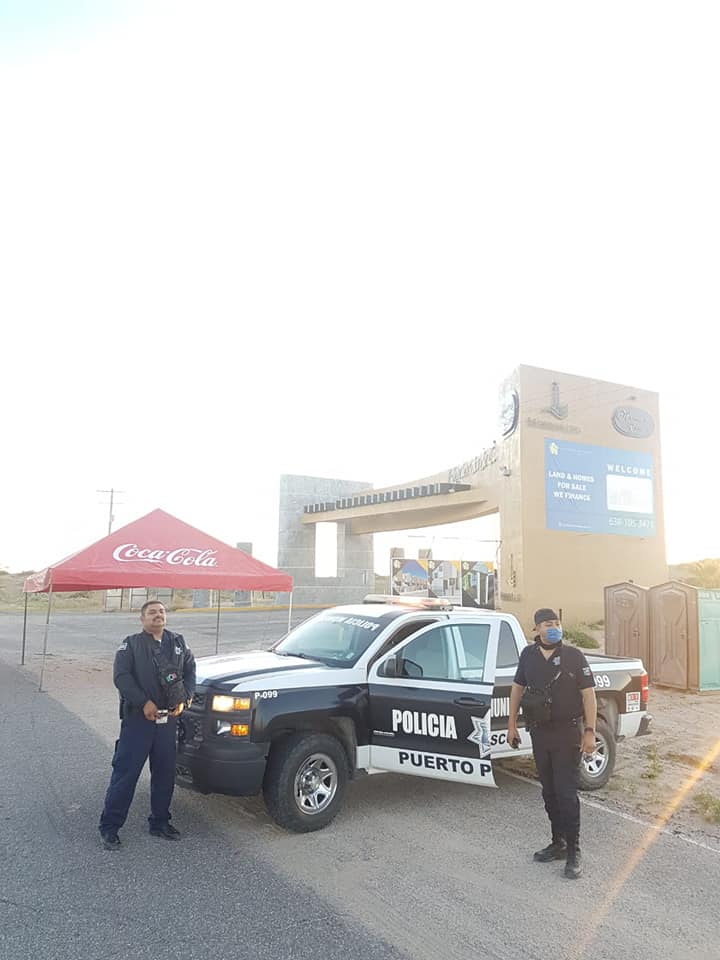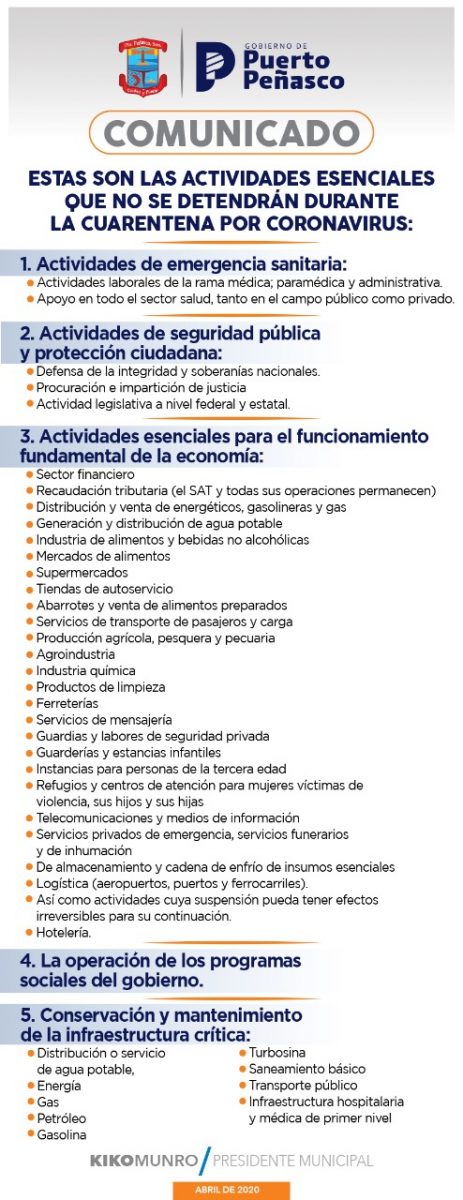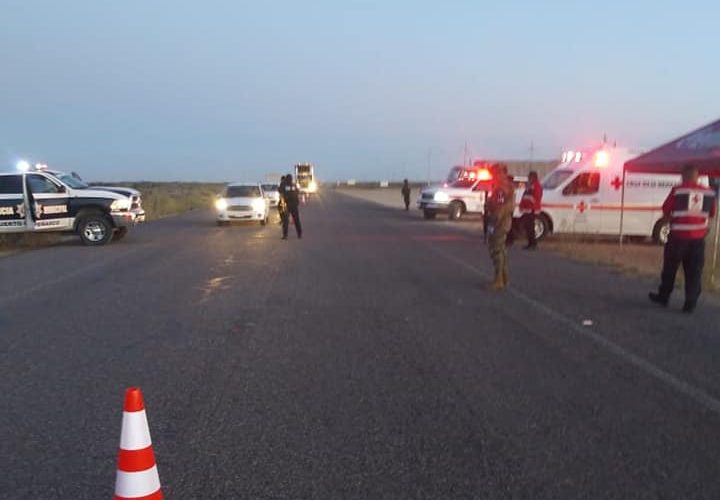By José Antonio Pérez & Shandra Keesecker-Rivero
On April 3rd, Puerto Peñasco’s Municipal Safety Board agreed to extend State and Federal “Quédate en Casa” (Stay at Home) measures to a 24 hour curfew, which will last until State and Federal authorities indicate otherwise. These measures form part of agreements from a videoconference meeting with Governor Claudia Pavlovich Arellano with mayors from 10 Sonoran municipalities, intensifying preventive actions against the Covid-19 coronavirus.
The community is called to stay in their homes, with only essential services remaining open (food, gasoline, medicine, take-out/delivery restaurants). The 24-hour Stay-at-Home order went into effect at noon on Friday, April 3rd and will remain in place until the Federal or State government issue decrees deeming a health risk no longer exists.
Implementation of beach access filters was also approved, as well as a “sanitary health barrier” for entry into the city. Only residents (with ID demonstrating a Puerto Peñasco address – i.e. driver’s license, INE electoral ID, phone bill, CFE bill, permanent resident card with address) will be given access to the city, along with those providing provisions and supplies.
The mayor noted, “Entry will not be allowed to anyone who does not reside in Puerto Peñasco. Family members, tourists, and others from outside the municipality will not be given access in order to prevent possible contagion.” The sanitary health barrier will include road blocks at highway entrances to the city when coming from Sonoyta, Caborca, or el Golfo.

For bus lines entering the city, only those accrediting their residence in Puerto Peñasco will be allowed to disembark. To the contrary, bus companies will face fines.
For foreigners residing in Puerto Peñasco, members of the Safety Board approved that upon arriving to the city they remain isolated in their homes for a period of 12 days, as defined by law, to verify they do not have or carry Covid-19.
Permanent filters will be set up across the city, with security and health members from the three levels of government, encouraging the community to Stay at Home as part of this preventive strategy.
The mayor noted there would be zero tolerance for those who do not comply with the Emergency Health declarations issued by the Federal and State Government, as well as the City of Puerto Peñasco, with fines.
The stepped-up measures come after epidemiological estimates from the Sonoran Secretary of Health as to the possibility of coronavirus cases across the state in coming weeks if people disregard the Stay at Home order, at 61,495 possible cases in Sonora and 1424 for Puerto Peñasco. Again, these numbers represent the Secretary of Health’s estimates without compliance to the Stay at Home orders.
The mayor underscored operations would continue at essential establishments concerning acquisition of medicine, going to the doctor for emergency, obtaining food services or necessary supplies for families, fuel, or other justifiable situations.
Essential activities to remain operating:
- Emergency Health Activities: Medical realm, paramedics, and administrative; help to health sector, both within public and private field.
- Public Safety and protection activities: Defense of national integrity and sovereignty; procuring and dispensing justice; Federal and State legislative activities
- Activities essential to fundamental function of economy: financial sector; tax collecting institution (SAT and all its operations); distribution and sale of fuel, gas stations and LP; generation and distribution of drinking water; food and non-alcoholic beverage industry; food markets; super markets; convenience stores; groceries and sale of prepared food; passenger and freight transportation services; agricultural production, fishing and livestock; agro-industry; chemical industry; cleaning products; hardware stores; delivery services; guards and private security work; childcare and nurseries; homes for the elderly; shelters or centers for women and children of domestic violence; telecommunications and media; private emergency services, funeral and burial services; storage and refrigeration of essential products; logistics (airports, ports, and railroads); and activities that suspension of which could have irreversible impact on their continuance; hotels
- Government Social Programs
- Conserving and maintaining critical infrastructure: distribution and service of potable drinking water, electricity, gas, fuel, gasoline, jet fuel, basic sanitation, public transportation, first level hospital and medical infrastructure

